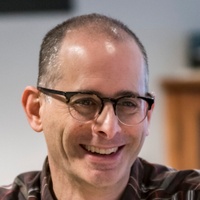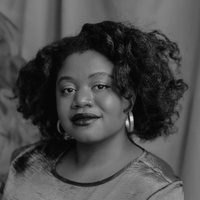As told to Hurley Winkler, 1848 words.
Tags: Writing, Identity, Process, Inspiration.
On loving your obsessions
Author Michael Lowenthal discusses exploring themes over a decades-long career, pivoting from fiction to nonfiction, and bringing new experiences to the current cultureIn 1990, you were the first openly gay valedictorian at Dartmouth. I’m curious what effect you think that particular move—this bold history-making action of coming out during your valedictorian speech in front of the student body—has had on your writing life as you’ve gone to explore queer themes throughout your work as a writer?
My coming out as gay was a tiny part of the speech, but of course, it’s what was the headline afterwards in The New York Times, and it’s what generated both positive publicity and a lot of backlash, especially within the Dartmouth College community. One of the things that it taught me, or prepared me for, was something about the power of the word “gay,” both for good and for ill. Maybe this was more the case back then, although I think it’s still the case to some degree, but sometimes, when you say “gay” or “queer,” that’s all people can hear, and it short-circuits their ability to hear anything beyond that. That’s often been in my mind as I write about queer subjects and themes, even though, for me, they may just be part of the mix.
To stand in front of about 10,000 people at the age of 20 and come out in 1990, when it wasn’t as common or as accepted? After doing that, writing about “risky topics” or “messy truths” or “sexually transgressive topics” just seemed much more doable and much less of a big deal. Or maybe I had fewer fucks to give once I’d come out and The New York Times published that I was gay. It prepared me to think that I could take risks like that and that there was a lot of upside.
I’m interested in something you just said about how all anyone really heard within that speech was the word “gay.” Given that you’ve been circling similar themes throughout your life, do you feel like you’ve been able to manipulate the fact that, at first, people might hear the word “gay” and assume that’s what you’re leading with? Have you been able to use that to your benefit at all?
I do love a good misdirection or sucker punch in narrative. I was writing a lot of explicitly sexual material when I was younger. I do like using the queer sexual aspect as a Trojan horse, where people think they’re going to get one sexy thing, but then it actually turns into either a family drama or something much more about profound loneliness. The headline is Queer Sex, and that’s the entry point, but then I try to take it in unexpected directions.
It seems like it comes really natural to you to examine a certain set of themes from different angles. Why do you think that is? And why do you think you’ve really held on to one set of themes for decades now?
I’m not sure. I mean, I think the truest, but maybe least satisfying, answer is that they’re just my themes. And I know some artists seem to just have this incredibly wonderful scattershot view of the world and move around a lot, but I guess I’m not that way. I used to worry about it a lot and think that it was a mark against my character or my creative abilities that I was always repeating myself and looking through the same lens whenever I observe human drama. But the more I’ve thought about it, I just don’t think there’s any reason to apologize for one’s obsessions.
Many of my favorite writers tend to circle the same ideas and themes over and over. William Maxwell’s coming back again and again to childhood loss and the death of his mother when he was a kid, and I don’t ding him for that. In fact, it makes his work more profound and interesting to me. And Alice Munro has written constantly throughout her career about girls growing up in small rural Canadian towns among undereducated family members and then going to the city and becoming literary and gaining a more liberated feminist point of view. I mean, how many of her stories have a Canadian woman taking a train to the big city? It happens over and over, and I am totally there for it. Looking at their work has made me feel somewhat less self-conscious about circling the same themes over and over.
A friend and I were recently talking about dark matter in physics, where you can’t see it directly, but it’s affecting everything in the universe, and none of the equations about the expansion of the universe makes sense unless you account for it. I love looking at any situation and trying to see that hidden dark matter that is exerting this huge gravitational force, even though it’s rarely acknowledged, and it’s not part of the visible world. For example, my novel Charity Girl is “about World War I,” but I had no interest in writing about battles or the shifting lines of nation states or political calculations. What drew my interest was this whole story about how women were punished for their sexuality, how their desire was seen by the government as a threat. They were rounded up and put in camps to keep soldiers from getting venereal disease. That’s the interesting dark matter going on below these epic battles and trench warfare. I could see parallels with the contemporary situation of the AIDS epidemic. I took my pre-existing concerns and interests and themes and applied them to this historical wartime situation that otherwise might not even have interested me at all.
You’re primarily known as a fiction writer, but you’re working on a nonfiction project right now. Has this decision to work in personal nonfiction came at all from a feeling that you’d written all the fiction you could write on the themes you’d like to explore? Was it even a conscious move away from fiction towards something new?
In all honesty, I’m still trying to figure it out myself. It wasn’t a conscious move other than in the sense that I seem to have stopped, at least for the time being, thinking in fictional terms. I used to see someone in the world and start imagining a whole narrative for them. I would read a story in the newspaper and wonder what the hidden forces and the not-being-told stories were. I just don’t seem to be thinking in that way these days.
I’m thinking much more about the reality of things that I’ve experienced, trying to figure out why I acted the way I did in certain circumstances. And I wonder if it’s just a factor of aging, a tendency toward self-reflection and reassessment. In a few cases, I specifically have been looking back at things, topics, and experiences that I once fictionalized, like my novel Avoidance, which was partly inspired by a boy I knew at summer camp. Twenty years after publishing that, I’m now telling the part that I didn’t include in the novel that in some ways, now, is almost more interesting to me. The Same Embrace, my first novel, had all this very fictionalized stuff about my own family and our Holocaust history, and part of it was inspired by an uncle I knew just a teeny few facts about but didn’t know any more. Part of what I’ve written about is the gap between what I fictionalized and what the truth was.
A huge question or debate in the culture for a while has been: who has authority to tell what story and whose voice counts? And I would like to think that my shift towards nonfiction doesn’t come entirely from a place of defensiveness or fear about that. It does seem, on some level, safe or safer to assume that if I’m an authority on anything, I’m at least an authority on myself in my own experiences. I feel some calling or responsibility to try to articulate my own point of view on various topics and issues.
Who are some writers you admire who are writing about themes similar to the ones you explore in your own work?
One of my favorites now is Douglas Stuart, who wrote Shuggie Bain. I love his second novel, Young Mungo, which is definitely circling some of the same ideas, but even more. I love how a writer like Andrew Holleran has, throughout his career, kept writing at each different stage about what queer desire means: when you’re in your 20’s, when you’re middle-aged, and later in life. He has the real bravery to write about loneliness and disconnection with regard to queer desire specifically. Trans writers and people writing on trans themes, I think, are really the ones who are bringing the news to our culture, which is what novelists are supposed to do: Torrey Peters, who wrote Detransition, Baby, and Andrea Lawlor, who wrote Paul Takes the Form of a Mortal Girl.
Because I’ve been working on essays, I’ve been especially drawn to writers who are mixing memoir and personal story with timely cultural topics: Jia Tolentino, Cathy Park Hong, Sarah Polley. One of my favorite recent books is Lost & Found by Kathryn Schulz, who similarly uses personal stories as a jumping point for meditation on thematic topics.
You teach in Lesley University’s MFA in Creative Writing program. When you have students who gravitate toward exploring certain things in their work, but maybe aren’t quite sure how to refine them yet, what guidance do you provide?
I try to give them reassurance and confidence that their themes are their themes, and I tell them it’s okay to be obsessed with what they’re obsessed with. I encourage people to hunker down in their obsessions but try to work on what it is that they don’t understand yet about what obsesses them. I ask, “Why does this obsess you? Why do you keep coming back to this?” And this may sound contradictory, but I also encourage them to live in the gray areas and stay there so that, even if they think they know what they’re writing about or what their message is or what they believe, they can try to let go of some of that certainty and live in the half-lit, half-knowing world, and try to be surprised by the undersides of what they thought they believe and know. And if they can embrace the weirdness and the risk and the surprise, that’s the thing that’s going to be the thing in the writing that’s the most them. It’s going to be their unique voice, their unique contribution.
Michael Lowenthal recommends:
Costco rotisserie chickens
The films of Majid Majidi
Fenway Park on a September evening
Duets by husband-and-wife musical team Bela Fleck and Abigail Washburn, one playing bluegrass finger-picking banjo, the other playing claw-hammer banjo
Standing in the middle of a neolithic stone circle, somewhere in the world, preferably Scotland




